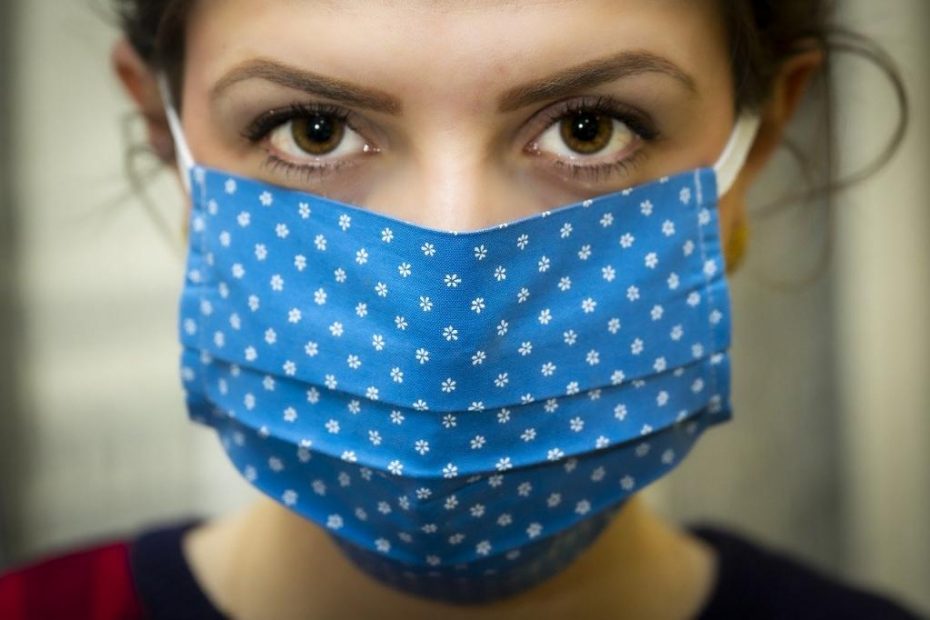If you’re exempt from wearing a mask, you’ve probably been given a hard time by friends, family, colleagues and even complete strangers, all telling you “it’s your duty” or “you’re spreading the virus.” Well, aside from the fact that it plainly isn’t your duty to keep others healthy, and that you can’t spread a virus if you don’t have it – and you’re unlikely to have a virus unless you have symptoms – there is extensive evidence to show that face masks and face coverings do not protect anyone against viruses.
So now, instead of getting into difficult conversations and circular debates, you can just forward this page to your friends and family. What follows is a comprehensive list of scientific mask studies, so anyone can access the information they need, to make an informed decision about whether they should be wearing a mask or not.
The evidence shows, not only do masks NOT work, but they can actually cause HARM to the wearer. Now, if your friends and family refuse to take your advice and read the evidence, they can’t expect you to take their advice when it comes to decisions about your health. Can they?!!
Studies Showing Masks Don’t Work…
- Rancourt, D. G. Masks Don’t Work: A review of science relevant to COVID-19 social policy (April 2020) (Professor Rancourt references all the main studies, which show that masks do not prevent spread)
- Professor Denis Rancourt’s VIDEO interview with Del Bigtree discussing his above article and the scientific papers referenced.
- COMMENTARY: Masks-for-all for COVID-19 not based on sound data: CIDRUP (Center for Infectious Disease Research & Policy, Univ. Minnesota) – WITH AN UPDATE FOLLOWING REQUESTS TO REMOVE THE ARTICLE, even though it cited 60 research studies.
- “Evidence that face masks can provide effective protection against respiratory infections in the community is scarce” – Rational use of face masks in the COVID-19 pandemic – The Lancet – Respiratory Medicine.
- “This study is the first RCT of cloth masks, and the results caution against the use of cloth masks. This is an important finding to inform occupational health and safety. Moisture retention, reuse of cloth masks and poor filtration may result in increased risk of infection.”- Cluster randomised trial of cloth masks compared with medical masks in healthcare workers – BMJ Open.
- “We identified 10 RCTs that reported estimates of the effectiveness of face masks in reducing laboratory-confirmed influenza virus infections in the community from literature published during 1946–July 27, 2018. In pooled analysis, we found no significant reduction in influenza transmission with the use of face masks… some studies also reported suboptimal adherence in the face mask group.” – Nonpharmaceutical Measures for Pandemic Influenza in Nonhealthcare Settings—Personal Protective and Environmental Measures (May, 2020).

Online retailer, Pretty Little Thing, was critised for selling a “useless” fishnet & diamante face mask.
But if you check the packaging on the surgical masks you buy in the supermarket, you’ll see they offer 98-99% effectiveness against BACTERIA. They never mention viruses. Why?
Bacteria are far larger than viruses. Coronaviruses, including SARS-CoV-2, are smaller than the holes in the masks and can travel through.
For this reason, it has been said that trying to block coronavirus with a face mask is like putting up a chain link fence to stop mosquitos.
No face mask is sold with a claim of effectiveness against any type of virus, let alone SARS-CoV-2, which is said to cause COVID-19.
More Studies Showing Masks Don’t Work…
The following are a selection of references cited in the last article above, which reviewed literature from 1946-2018 (that’s how long scientists have been studying the effectiveness of masks – do you think they should have known the answer before ‘Covid’ came along?).
- Barasheed O, Almasri N, Badahdah AM, Heron L, Taylor J, McPhee K, et al.; Hajj Research Team. Pilot randomised controlled trial to test effectiveness of facemasks in preventing influenza-like illness transmission among Australian Hajj pilgrims in 2011. Infect Disord Drug Targets. 2014;14:110
- Aiello AE, Murray GF, Perez V, Coulborn RM, Davis BM, Uddin M, et al. Mask use, hand hygiene, and seasonal influenza-like illness among young adults: a randomized intervention trial. J Infect Dis. 2010;201:491–8.
- MacIntyre CR, Cauchemez S, Dwyer DE, Seale H, Cheung P, Browne G, et al. Face mask use and control of respiratory virus transmission in households. Emerg Infect Dis. 2009;15:233–41.
- MacIntyre CR, Zhang Y, Chughtai AA, Seale H, Zhang D, Chu Y, et al. Cluster randomised controlled trial to examine medical mask use as source control for people with respiratory illness. BMJ Open. 2016;6:e012330.
- US Food and Drug Administration (FDA). Masks and N95 respirators, 2018 [cited 2019 Jul 10].
- Centers for Disease Control and Prevention (CDC). Respirator fact sheet, 2012 [cited 2019 Jul 10].
- Chughtai AA, Seale H, MacIntyre CR. Use of cloth masks in the practice of infection control—evidence and policy gaps. Int J Infect Control. 2013;9:1–12.
- World Health Organization. Advice on the use of masks in the community setting in Influenza A (H1N1) outbreaks, 2009 [cited 2019 Jul 10].
- Cowling BJ, Chan KH, Fang VJ, Cheng CK, Fung RO, Wai W, et al. Facemasks and hand hygiene to prevent influenza transmission in households: a cluster randomized trial. Ann Intern Med. 2009;151:437–46.
- Cowling BJ, Fung RO, Cheng CK, Fang VJ, Chan KH, Seto WH, et al. Preliminary findings of a randomized trial of non-pharmaceutical interventions to prevent influenza transmission in households. PLoS One. 2008;3:e2101.
- Larson EL, Ferng YH, Wong-McLoughlin J, Wang S, Haber M, Morse SS. Impact of non-pharmaceutical interventions on URIs and influenza in crowded, urban households. Public Health Rep. 2010;125:178–91.
- Simmerman JM, Suntarattiwong P, Levy J, Jarman RG, Kaewchana S, Gibbons RV, et al. Findings from a household randomized controlled trial of hand washing and face masks to reduce influenza transmission in Bangkok, Thailand. Influenza Other Respir Viruses. 2011;5:256–67.
- Suess T, Remschmidt C, Schink SB, Schweiger B, Nitsche A, Schroeder K, et al. The role of facemasks and hand hygiene in the prevention of influenza transmission in households: results from a cluster randomised trial; Berlin, Germany, 2009-2011. BMC Infect Dis. 2012;12:26.
Studies Showing Masks Cause Harm…

The UK Government acknowledges you have a ‘reasonable excuse’ at law NOT to wear a face covering if you wish “to avoid harm or injury, or the risk of harm or injury, to yourself or others.”
The risk of harm or injury here is subjective: if YOU think you might be harmed, that is enough to choose not to wear a mask.
‘Reasonable excuse’ is incorrectly quoted by retailers and others as “medical exemption.” No-one needs a medical exemption to avoid wearing a mask.
For those who need PROOF that masks can cause harm, see below…
- Blaylock: Face Masks Pose Serious Risks To The Healthy (with references to source studies) (11 May 2020)
- “Carbon dioxide (CO2) rebreathing in respiratory protective devices (RPDs) has been highlighted as a key concern regarding respirator use… This paper presents novel findings on the impact of phonic respiration (breathing during speech) and CO2 concentrations in RPDs.” / “The results showed that phonic respiration and low work rates contributed to significantly higher levels of CO2 rebreathing.” Carbon dioxide rebreathing in respiratory protective devices: influence of speech and work rate in full-face masks (21 March 2020 – from National Institutes of Health (NIH) – the primary agency of the United States government responsible for biomedical and public health research)
- “Five studies were included. Wearing RPDs exerted significant respiratory effects, including increased breathing resistance, CO2 rebreathing due to CO2 accumulation in the RPD cavity, and decreased inhaled O2 concentration. We discussed the implications of these effects on the respiratory pathophysiology of panic.” – Impact of respiratory protective devices on respiration: Implications for panic vulnerability during the COVID-19 pandemic (also from NIH website).
- “Carbon dioxide poisoning (also called hypercapnia or hypercarbia) results from high levels of carbon dioxide in the blood. Carbon dioxide poisoning often occurs […] from […] contamination of the air supply with exhaled gases, which can cause a carbon dioxide build-up. Carbon dioxide levels in the blood may increase, causing shortness of breath and drowsiness, resulting in carbon dioxide toxicity. Symptoms […] include nausea, vomiting, dizziness, headache, rapid breathing, fast heart rate, and flushing (warmth, redness, or tingling of the skin). Symptoms of severe cases […] may include confusion, convulsions, and loss of consciousness.” – Symptoms and Signs of Carbon Dioxide Poisoning (3/11/2019 – from eMedicine Health, part of WebMD)
- Respirator masks protect health but impact performance: a review. J Biol Eng. 2016; 10: 4. Published online 2016 Feb 9. (NB: while the title of this piece suggests a health benefit, note that this article is concerned with ‘respirators’, used to protect against “airborne contaminants” such as “gases, vapors, dusts, and particulates of various sizes, including aerosols.” The article does not mention viruses. It has been included here because many people are choosing to wear industrial respirators, such as N95s, in an attempt to combat COVID-19. Note, also, this article does not attempt to prove any health benefit but rather assumes it as a starting point.)
- Dangers of wearing masks in the heat and Humidity – Published June 1, 2020 by the National Vaccine Information Center (NVIC).
- Masks, false safety and real dangers, Part 4: Proposed mechanisms by which masks increase risk of COVID-19. Primary Doctor Medical Journal. This article analyses data from 25 countries and concludes: “Population studies show that the use of masks either resulted in an increased incidence of COVID-19 or had no impact… Caution is therefore urged against use of masks among those who wish to reduce the risk, either for themselves or others, of infection with SARS-CoV-2 or COVID-19 disease.”
Happy reading!
Don’t forget to share this list with your friends and family – hope they appreciate and decide to follow The (Real) Science!
